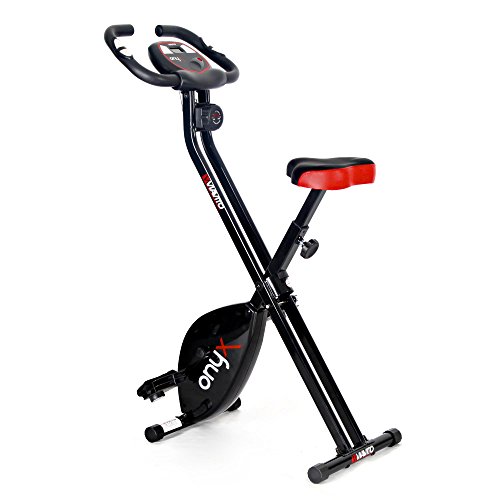7 Practical Tips For Making The Most Out Of Your Gym Equipment
The Comprehensive Guide to Gym Equipment: Navigating the Fitness Landscape
In the ever-evolving world of fitness, gym equipment plays a critical function in helping people achieve their health and health objectives. From Online Fitness Bikes to seasoned athletes, understanding the numerous types of gym equipment and their functions is vital for creating an effective workout routine. This comprehensive guide looks into the world of gym equipment, providing insights into the most common types, their benefits, and suggestions for using them safely and successfully.
Kinds Of Gym Equipment
Gym equipment can be broadly classified into numerous types, each designed to target particular muscle groups and fitness goals. Here's a comprehensive appearance at the most common categories:
Cardiovascular Equipment
- Treadmills: Ideal for running and walking, treadmills use adjustable speeds and slopes to mimic different surfaces.
- Elliptical Trainers: These devices provide a low-impact, full-body workout, engaging both the upper and lower body.
- Stationary Bikes: Perfect for cycling lovers, stationary bikes been available in upright and recumbent styles, accommodating various convenience levels.
- Rowing Machines: Rowing devices offer a full-body workout, concentrating on the back, arms, and core while also enhancing cardiovascular health.
Strength Training Equipment
- Free Weights: Dumbbells, barbells, and weight plates are versatile tools for developing muscle and strength.
- Weight Machines: These devices target specific muscle groups with directed movements, making them perfect for beginners.
- Resistance Bands: Portable and affordable, resistance bands offer a versatile method to add resistance to workouts.
- Kettlebells: Kettlebells are exceptional for practical training, integrating strength and cardio workouts.
Functional Training Equipment
- TRX Suspension Trainers: TRX fitness instructors use body weight and gravity to carry out a variety of exercises, enhancing strength, versatility, and balance.
- Fight Ropes: Battle ropes are used for high-intensity interval training (HIIT) and improve cardiovascular fitness and core strength.
- Medication Balls: These weighted balls are versatile tools for plyometric workouts, improving power and coordination.
Flexibility and Recovery Equipment
- Foam Rollers: Foam rollers aid with muscle healing by minimizing muscle tightness and pain.
- Yoga Mats: Essential for yoga and Pilates, yoga mats provide cushioning and support for different exercises.
- Extending Straps: Stretching straps aid in enhancing flexibility and variety of motion.
Advantages of Using Gym Equipment
Enhanced Cardiovascular Health
- Cardiovascular equipment such as treadmills and elliptical trainers assists improve heart health, increase endurance, and burn calories.
Increased Strength and Muscle Mass
- Strength training equipment like weights and weight devices construct muscle, enhance bone density, and enhance metabolism.
Improved Flexibility and Mobility
- Flexibility and recovery equipment like foam rollers and yoga mats assist enhance versatility, lower the risk of injury, and promote much better posture.
Better Mental Health
- Routine exercise, facilitated by gym equipment, can decrease tension, anxiety, and depression, while enhancing total mental well-being.
Adjustable Workouts
- The variety of gym equipment permits people to tailor their exercises to their specific goals and preferences, whether it's weight-loss, muscle gain, or basic fitness.
Tips for Using Gym Equipment Safely and Effectively
Start with a Warm-Up
- Constantly begin your workout with a 5-10 minute warm-up to increase blood flow and prepare your muscles for exercise.
Discover Proper Form
- Take the time to find out the right type for each exercise to prevent injury and maximize outcomes. Consider dealing with an individual trainer or viewing educational videos.
Progress Gradually
- Slowly increase the intensity and duration of your exercises to avoid overexertion and injury. Listen to your body and adjust as required.
Stay Hydrated
- Drink lots of water previously, throughout, and after your workout to stay hydrated and maintain optimum performance.
Cool Down and Stretch
- Complete your workout with a cool-down duration and stretching to help your muscles recover and reduce soreness.
Frequently asked questions
Q: What is the best piece of cardio equipment for weight-loss?
- A: The best piece of cardio equipment for weight-loss depends on individual preferences and fitness levels. Treadmills and elliptical fitness instructors are popular choices due to their capability to burn a high variety of calories. Nevertheless, any cardio equipment that you delight in and can utilize consistently will work.
Q: How often should I utilize gym equipment?
- A: The frequency of gym equipment use depends upon your fitness objectives and schedule. For basic fitness, go for at least 150 minutes of moderate-intensity cardio and 2 days of strength training per week. Change the frequency based on your particular goals and recovery needs.
Q: Can I achieve a full-body workout with just one tool?
- A: While no single piece of equipment can target every muscle group, some machines like rowing devices and TRX suspension trainers offer a thorough workout. Integrating multiple tools for a well-rounded regimen is typically more reliable.
Q: How can I prevent injury while using gym equipment?
- A: To prevent injury, always heat up before exercising, learn proper form, begin with lighter weights or lower intensity, and gradually increase the trouble. Additionally, listen to Fitness Bicycle For Sale and stop if you feel discomfort.
Q: Is it required to have an individual trainer to utilize gym equipment efficiently?
- A: While a personal trainer can supply valuable assistance and motivation, it is not needed to have one to use gym equipment efficiently. Numerous gyms use training materials, and online resources can also assist you find out proper strategies.
Gym equipment is a powerful tool for achieving a large range of fitness objectives, from weight reduction and bodybuilding to enhanced cardiovascular health and mental wellness. By understanding the various types of equipment and their advantages, and following security guidelines, individuals can create reliable and satisfying workout regimens. Whether you're a fitness beginner or a seasoned professional athlete, the best gym equipment can help you reach your full potential and lead a much healthier, more active way of life.
